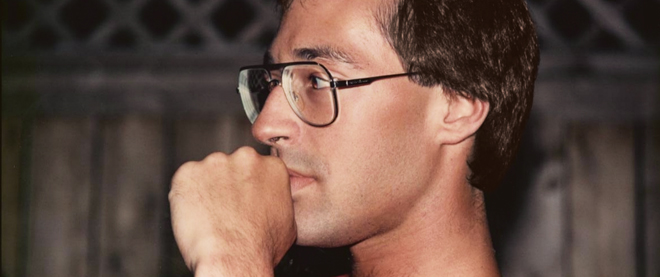A modern-day Marco Polo
A daring explorer and teacher, Brady was the bravest man I ever met
Courtesy of Allan Fotheringham; Facebook
Share

My number one son Brady Fotheringham, born in Vancouver in 1964, was named after Mathew Brady, a New York photographer whose iconic images of the Civil War made him a father of photojournalism.
Such was the eloquent impact of his battlefield photographs that even the New York Times said he brought “home to us the terrible reality and earnestness of war.”
Brady had the usual helter-skelter youth, which ended at the age of 13 when he suddenly collapsed while wrestling with his younger brother Kip in the family garage. The doctors discovered that he was an epileptic and devised that a medical prescription of 20 pills a day would let him live an ordinary life.
After graduating from the University of British Columbia, he worked for a small Vancouver daily paper but then, like his father, decided to conquer the world. Unlike his father, who did it through 91 countries on an expense account, he would do it on a mountain bike.
After roaming Europe, in the mountains of North Africa he ran across two older bikers from England who had a wild and crazy dream. Their plan was to retrace on their mountain bikes Marco Polo’s ancient Silk Road, history’s most famous trade route, which in the 13th century snaked by camel from China to the Mediterranean.
It took nine months to negotiate with the Chinese bureaucrats. “The most amusing part,” Brady wrote, “was the requirement from Afghanistan to provide the name and address of a relative who would cough up US$50,000 if I were kidnapped and held for extortion. I scribbled down the name of a man who has never known to this day.”
In 1997, the three mountain bikers set out from Beijing. After three weeks, Brady’s energy level—at age 33—was too much for the 50-ish Brits and they left for London.
He was on his own in the desolate Chinese desert. He cycled over the world’s highest pass at 16,000 feet above sea level. He visited with Pakistani royalty and dined with tank commanders in Afghanistan. And every single night he recorded his adventures into his notebook and tape recorder for his planned book.
One thing he found: Marco Polo, on history’s most famous trade route, took noodles home, and Italians have ever since claimed they invented pasta.
Three months, 5,000 km and numerous arrests after he started, Brady arrived in Delhi, India. And then went home to produce in 2000 his bestselling book, On the Trail of Marco Polo: Along the Silk Road by Bicycle.
His wanderlust never stopped. He returned to his beloved Orient and settled in Seoul, South Korea, and taught English in the capital’s most prominent private school.
Eight years later, on June 29 of this year, he was about to leave for school when he collapsed and died instantly of a heart attack. The toll of 20 pills a day for three decades had taken its toll on his body. He was 47.
Brady’s brother Kip, now a Vancouver forestry executive, flew to Seoul and established a $20,000 yearly scholarship under Brady’s name to go to the school’s top graduating student in English. He also donated Brady’s books to the school where an English section in Brady’s name will be established in the school library. At the cremation service, 75 students, faculty and parents showed up.
Brady Fotheringham was the bravest man I ever met.
Marco Polo said it best on his deathbed: “I didn’t tell half of what I saw, because no one would have believed me.” That was Brady, too.
He’s not with us today, but we all know where he is and how well he’s being treated there.
Allan Fotheringham’s memoir, Boy From Nowhere, is due out in October.